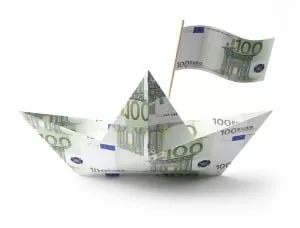I’ve been helping small and medium-sized businesses move offshore since 2000. Over these 17 years, I’ve seen just about everything… wild successes, a few crashes and burn, those who can’t survive outside of suburbia and return home, and everything in between.
In this post, I’ll look back and consider what type of business should go offshore and what type of business should stay in the United States. There are certain types of business which lend themselves to going offshore and some that are very difficult to manage from a tax perspective.
Keep in mind that I’m looking at this from the perspective of the small to medium-sized business owner. Of course a major multinational can overcome all of the hurdles below. But, us small entrepreneurs need to take only measured risks and don’t have unlimited budgets to implement some convoluted plan… we need to keep it simple and efficient to maximize the benefits of taking our business offshore.
With that said, in my opinion:
- The most efficient business to take offshore is one that provides a service from abroad to people and companies outside of its company of operations. This is the best business to operate from and offshore zero tax country.
- The most difficult business to manage abroad is one that sells a physical good from a foreign country into the United States. This is the type of business I would avoid.
I’ll start with the sale of physical products into the United States. Whenever you sell a product from abroad, you will have some US tax to pay. This is because the sale of a physical good into the United States always creates US source income which is taxable in the United States.
If your company, which operates from Panama, buys a product in China and sells it in the United States, some portion of your profit is US source income and taxable. Likewise, some component of your income is attributable to the work done by the team in Panama and is foreign source income to the US. Foreign source income earned by an offshore company is not taxable in the United States.
Allocating income between the US and Panama is difficult and fraught with risks. For this reason, I’m not a fan of small US businesses that sell a physical product into the US market that move offshore to reduce their taxes. They’re in for a tough road with the IRS.
What’s not difficult is a business that exports services to people and corporations outside its country of operation. This is especially easy if the owners of the business are living outside of the United States and qualify for the Foreign Earned Income Exclusion.
- The Foreign Earned Income Exclusion allows US citizens to exclude up to $102,100 in salary from Federal income taxes in 2017. To qualify, you must be out of the US for 330 days out of 365 or a resident of a foreign country for a full calendar year. If both a husband and wife operate the business and qualify for the FEIE, they can take out over $200,000 tax-free combined.
The reason an export of services business is easier to take offshore than a physical product company is two-fold:
- The United States taxes services where the work is performed. So, if all the work is performed in Panama, and you’re operating through a Panama corporation, you have no US source income and pay no US tax on the business profits. *
- Panama and other countries generally don’t tax service income when the service is provided to company and people outside of their country. So, selling services to people in the United States is not taxable in Panama.
* Your Panama corporation won’t pay US tax in this situation. If you, the US shareholder living in Panama, take out more than the FEIE, you will pay tax on the excess. If you earn more than the FEIE, you can retain the balance in the corporation tax-deferred.
For example, a website building company or an internet marketing/affiliate marketing company based in Panama and selling services into the United States, is the perfect offshore business.
You won’t pay US tax on your income up to the FEIE amount. Also, you can retain any excess tax-deferred until you take it out as a dividend.
Also, you won’t pay any tax in Panama because you’re not providing a service to people in Panama… only to businesses and companies outside of Panama.
This offshore business model works great for portable services businesses that net $100,000 to $500,000 a year. As the business grows, the value of the tax-deferred income will decrease and your US tax costs increase.
For this reason, I suggest a business that will net $500,000 or more and can hire 5 employees (including the owners), consider the US territory of Puerto Rico. This tax deal is basically the inverse of the FEIE: pay ordinary rates on your salary and 4% on corporate profits in excess of your salary.
To compare apples to apples, let’s say you take a salary of $100,000 a year and net $1 million. You pay about 30% tax on that first $100,000 and 4% on the remaining $900,000. There is no need to hold retained earnings in the corporation and you will never pay US tax when you bring that money into the United States.
I hope you’ve found this article on which businesses you can take offshore to be helpful. For more information on this, and to set up an offshore company or a business please contact us HERE
Here is an article you must read! The Ultimate Guide to Going Offshore. You will love it!
Contact Author
"*" indicates required fields
Stay Ahead on Every Adventure!
Stay updated with the World News on Escape Artist. Get all the travel news, international destinations, expat living, moving abroad, Lifestyle Tips, and digital nomad opportunities. Your next journey starts here—don’t miss a moment! Subscribe Now!










